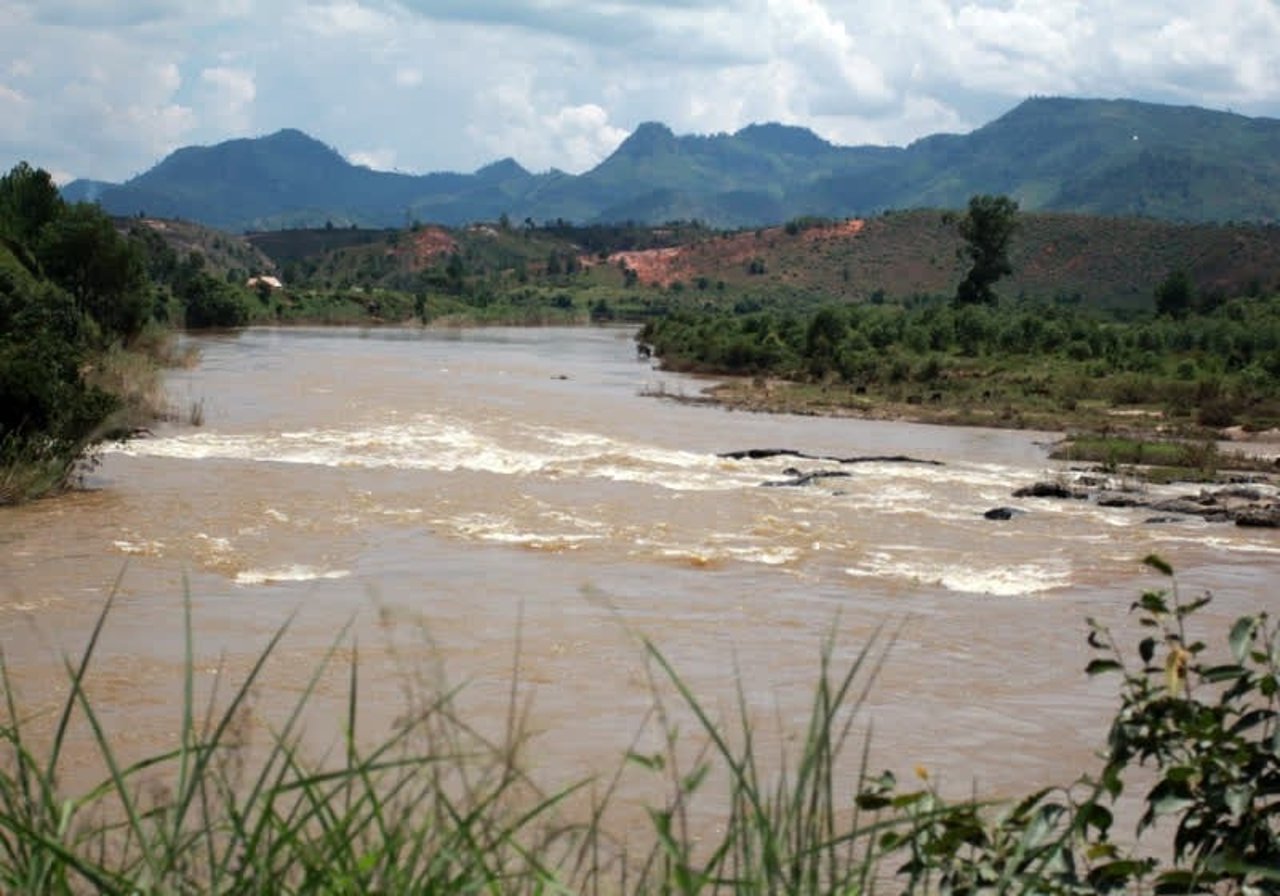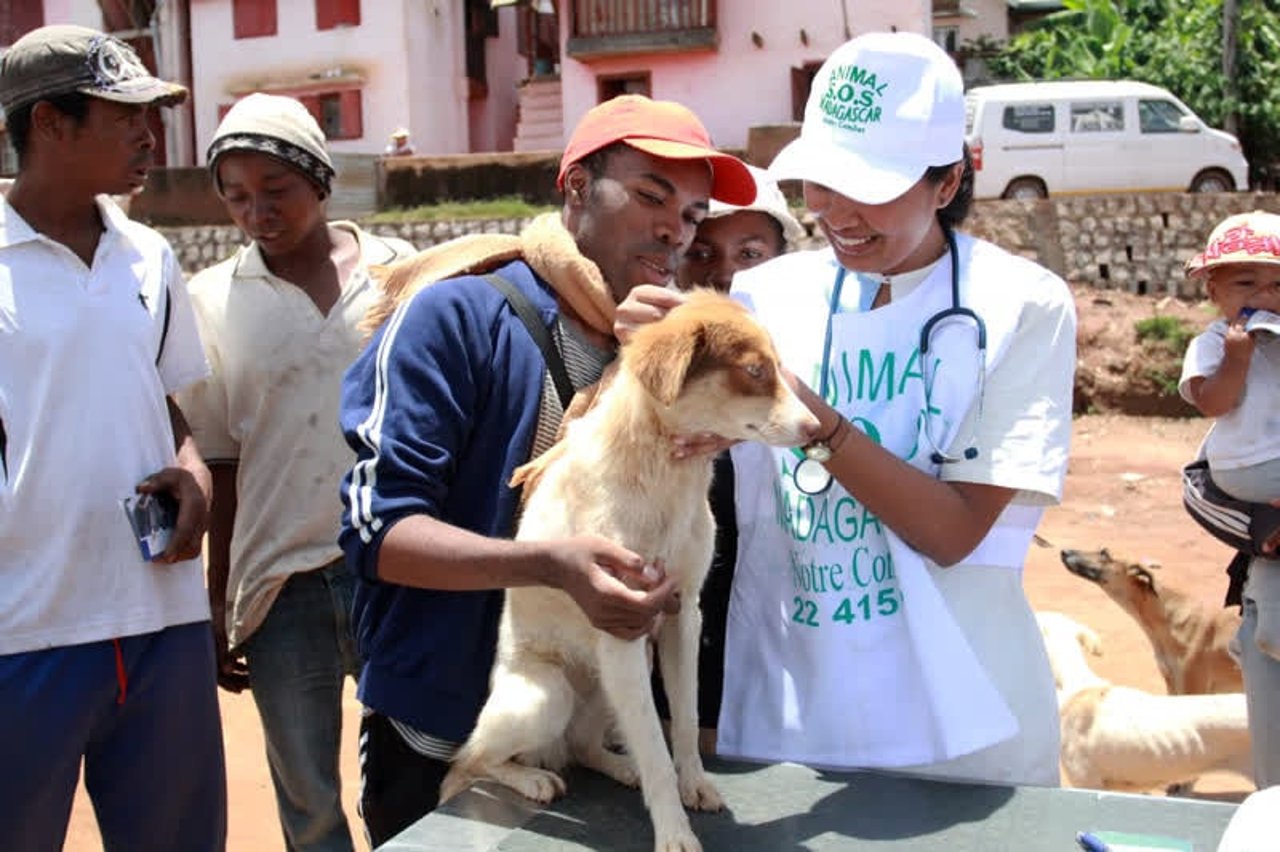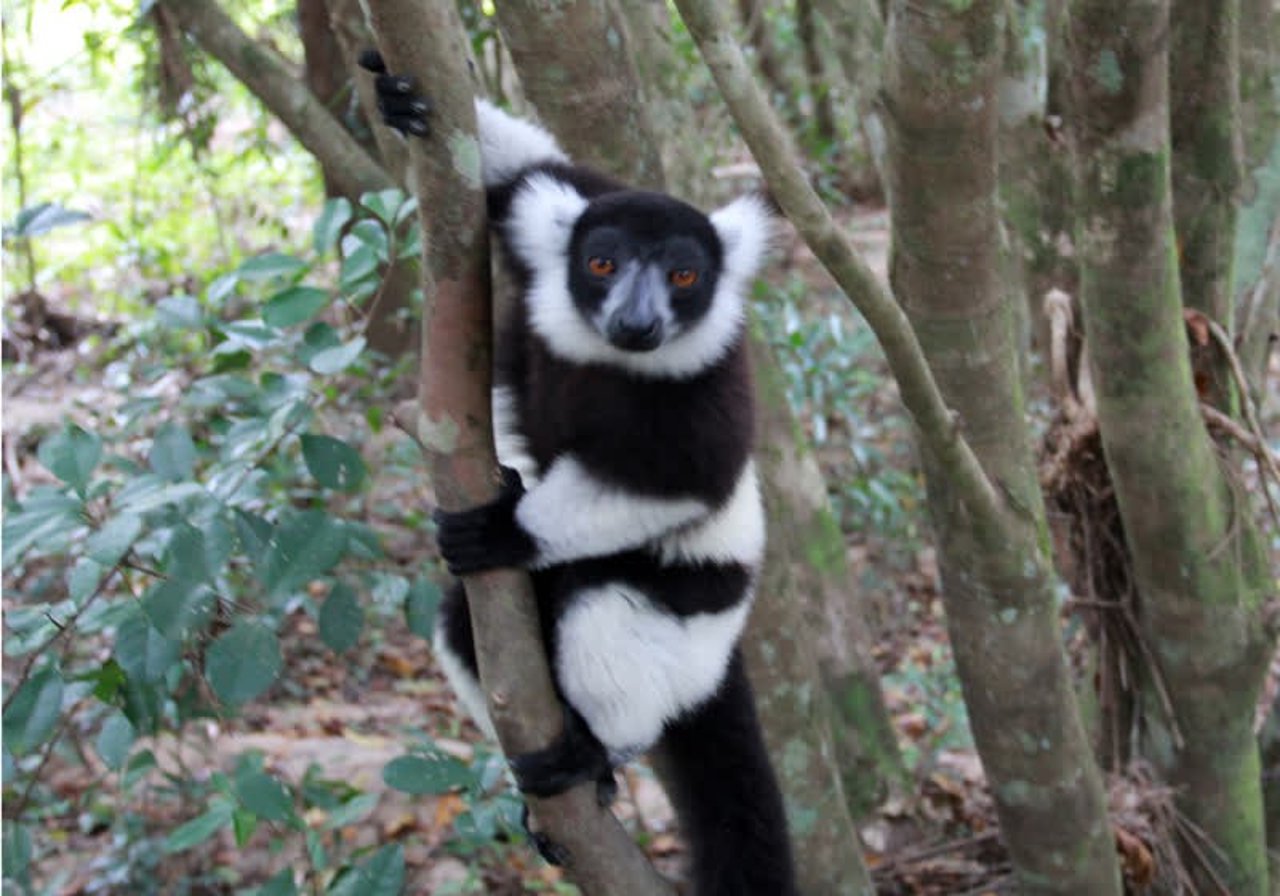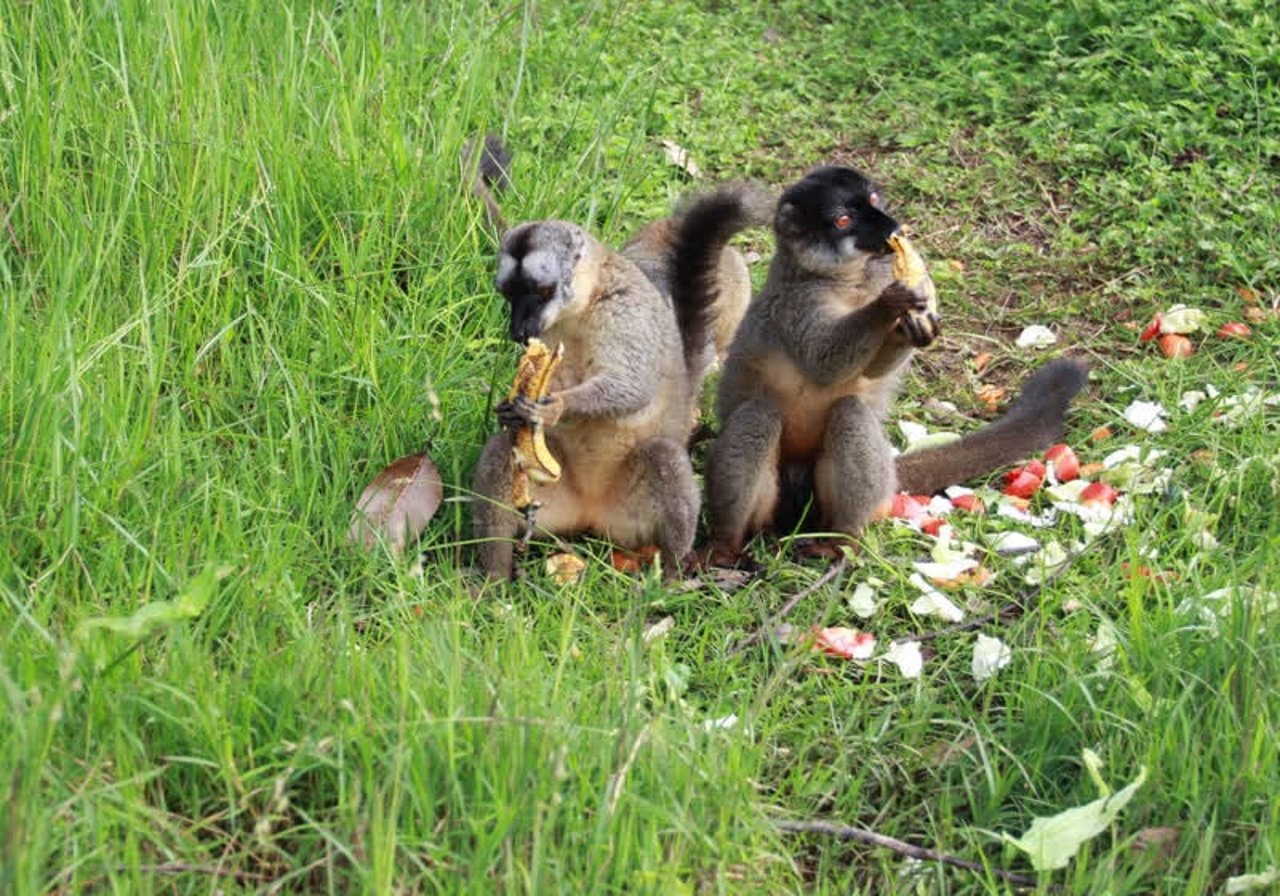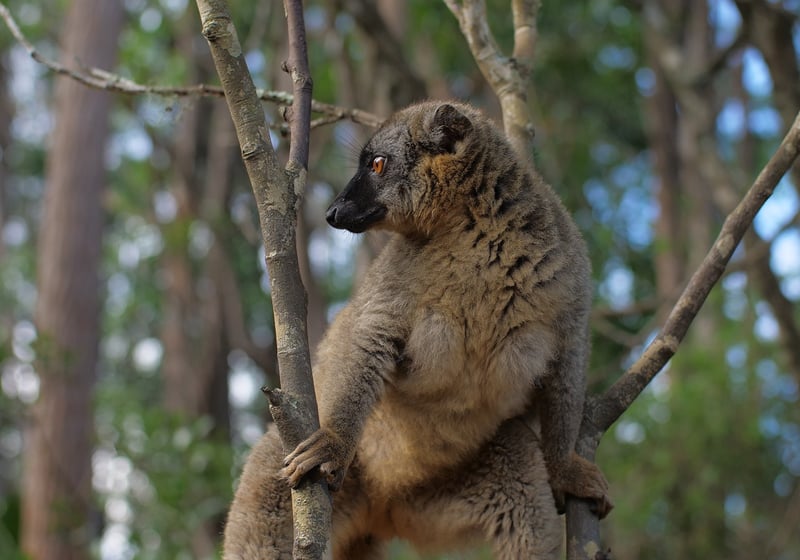
Cyclone Ava: we’re caring for more than 8,000 wild animals, pets and farm animals in Madagascar
Blog
Torrential rains, floods and landslides left thousands of animals at risk after it struck the African island last month. Our mobile clinic is visiting animals in urgent need, and helping them recover
Madagascar has an incredibly unique ecosystem, and many of its species of animals and plants can’t be found anywhere else.
But sadly, it’s also one of the poorest countries in the world and is frequently hit by natural disasters.
On January 5, tropical Cyclone Ava swept across the eastern part of the island, causing devastating floods and landslides.
On the 5th January 2018, tropical cyclone Ava hit the eastern part of Madagascar, with many rivers overflowing, roads cut off, and bridges submerged. Pictured: One of the rivers outside Antananarivo, which had flooded causing damage to infrastructure, and problems for animals in the area.
Our mobile veterinary clinic has helped 8,868 wild birds, dogs, cats, chickens, and more in the Antananarivo region. We’ve also been caring for lemurs, whose habitats have been badly affected by the cyclone.
Thousands of people’s lives have been wrecked by the cyclone too. Around 40 people have died and more than 24,000 have been evacuated.
How we're helping animals
We’re working with the local government and Animal SOS, a local animal welfare organization and our partner on the ground, to help as many animals and animal owners as possible.
In the country’s most affected regions, we’re providing:
· A mobile veterinary clinic to vaccinate and treat of injured and sick animals
· Food for dogs and lemurs
· Parasite treatment for dogs, cats, cattle, pigs, chickens, geese and ducks
Following the disaster we visited the field, and with local partner (Animal SOS), covered several locations with two mobile teams to feed and deworm animals such as cattle, dogs, cats, chicken, ducks, geese, and pigs. Pictured: Dr. Zoavina with Felsi and her owner Setra
Animals are important to people in Madagascar, and many Malagasy people rely on animals to survive. We met an 11-year-old boy named Jerry Ramahiriso during our time in Madagascar, and he told us: “Helping animals is important as they let the family have money – but they are also my friends."
Charlie the lemur
Traffickers attempted to poach Charlie from the wild by using a slingshot to knock him from a tree. After he fell to the ground, he was immediately attacked by a dog and left paralyzed.
The poachers, likely mistaking him for dead, abandoned him, but luckily Charlie was brought to Vakona Reserve. Although still partially paralyzed, Charlie now lives a full life, where he has many lemur friends and a safe place to call home.
Charlie, pictured in his sanctuary home
After Cyclone Ava struck, Vakona Reserve’s natural food supplies were decimated. Poor Charlie was in harm’s way once again.
We provided the reserve with food and other materials to help ease the strain as they rebuild in the coming weeks.
Wild animals at risk of trafficking
There’s a direct link between disasters and an increase in the illegal wildlife trade in Madagascar. Sadly, frequent disasters ruin people’s livelihoods and income, so some turn to the illegal wildlife trade to try and stay out of poverty.
Cyclone Ava has damaged much of the rainforest, leaving wild animals exposed and vulnerable, and making it easier for wildlife traffickers to spot and capture them.
As part of our work to help wild animals affected by the disaster, we visited the Vakona Reserve, a private wildlife reserve next to the Andasibe-Mantadia National Park.
Following the disaster, we visited Vakona Reserve, which rehabilitates animals that have been rescued from trafficking and can not be released back into the wild. We donated food, as the cyclone had destroyed foliage, cover and natural food sources.
Many animals who live there have been rescued or confiscated from the trafficking trade. So we needed to ensure that once released, these animals will be homed in high welfare reserves, where they’ll be protected from future cyclones and other disasters.
We also provided food for lemurs while we were at the reserve.
Animals need us
There’s a direct link between disasters and an increase in the illegal wildlife trade in Madagascar.
